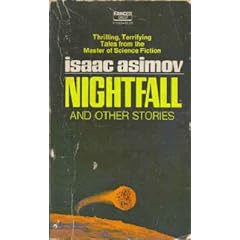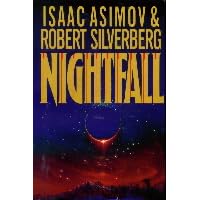

Nightfall, by Isaac Asimov--both a short story (1941) and a novel written with Robert Silverberg (1990).
I cannot speak to Asimov's original motivation in writing the short story in 1941, but the plot certainly seems relevant today in many ways: A group of scientists make discoveries strongly suggesting an impending global cataclysm, which much of society rejects. In this case, a planet lit by six separate suns, whose people have never known a moment of Darkness, faces an eclipse (during a period where only one sun is visible) by a heretofore-unseen moon, leaving half of the planet in total darkness for about fifteen minutes. During this time, the stars finally become visible for the first time in recorded history. For people who have an instinctive fear of any sort of darkness, this cause widespread insanity and the breakdown of civilization. A religious cult preaches that the Stars are divine punishment for the sins of humanity and predicts the End of the World. In desperation to get some source, any source of light, panicked humans set fire to the cities. It turns out that this is a repeating cycle: the same eclipse occurs every 2,049 years, with approximately the same results each time.
Luckily, we are not headed for any comparable conflagration anytime too soon, but these stories are some interesting food for thought.



1 comment:
If you don't come to the YE discussion forum on global warming next week, I will punch you in the nuts.
$15 gets you food & wine, and the opportunity to debate with some fancy schmancy UT prof.
Pleeeeeeeeeeeeeeeeeeeeeeeeeease!
Post a Comment